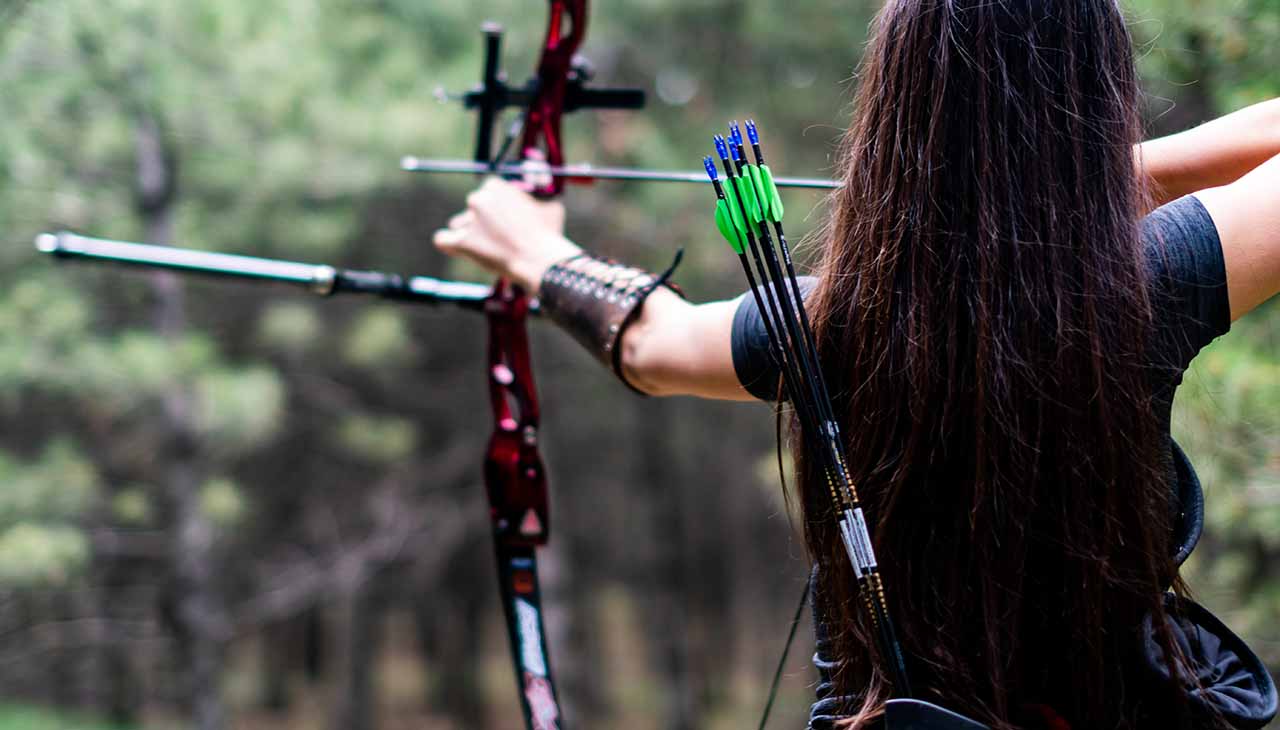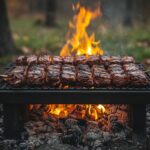Hunting has long been a revered pastime, combining skill, patience, and a deep connection with nature. Whether you’re a seasoned hunter or an outdoor enthusiast exploring your options, the debate between bow hunting and rifle hunting is one worth examining. Each method brings its own set of benefits and challenges, and understanding these can help you make informed decisions about your hunting practices.
Introduction to the Debate
When it comes to hunting, the choice between bow hunting and rifle hunting often stirs passionate discussions. Both methods offer unique experiences and require different sets of skills. This blog post aims to explore the pros and cons of each method, providing insights into their impact on wildlife and conservation efforts. By the end of this read, you’ll have a clearer understanding of which hunting style might suit your needs and preferences best.
The Pros and Cons of Bow Hunting
Precision and Ethical Hunting Practices
Bow hunting is often lauded for its emphasis on precision. Hunters must get close to their prey, aiming for a quick, humane kill. This focus on accuracy promotes ethical hunting practices, ensuring that the animal suffers as little as possible.
However, mastering the bow requires significant skill and practice. Unlike rifles, which can be more forgiving, bows demand a high level of proficiency. The learning curve can be steep, but many hunters find this challenge rewarding.
Limited Range and Skill Requirements
One of the main drawbacks of bow hunting is its limited range. Typically, a bow can effectively kill at distances up to 40 yards, much shorter than a rifle. This limitation requires hunters to get much closer to their prey, increasing the difficulty and risk of detection.
Additionally, bow hunting demands greater physical strength and endurance. Drawing the bowstring and holding it steady requires both upper body strength and stamina, making it a more physically demanding option.
Stealth and Close Encounters with Wildlife
Bow hunting necessitates a higher degree of stealth. Hunters must move quietly and remain undetected to get within shooting range. This need for stealth leads to more intimate encounters with wildlife, providing a unique and exhilarating experience.
These close encounters also mean that bow hunters must be highly aware of their surroundings. Understanding animal behavior and habitat becomes crucial, adding another layer of complexity to the hunt.
The Pros and Cons of Rifle Hunting
Long-range Accuracy and Versatility
Rifle hunting offers the advantage of long-range accuracy. Depending on the rifle and ammunition, hunters can take down game from several hundred yards away. This capability allows for greater versatility in different hunting environments.
Rifles also provide a wider margin for error. Unlike bows, which require precise placement, rifles can be effective with less pinpoint accuracy. This makes them a more accessible option for beginners.
Effectiveness in Different Terrains and Weather Conditions
Rifles perform well across various terrains and weather conditions. Whether hunting in dense forests or open fields, a rifle’s effectiveness remains consistent. This versatility makes rifle hunting a preferred choice for many hunters who frequent diverse hunting grounds.
However, the power of rifles comes with increased responsibility. Hunters must be mindful of their surroundings to ensure safety, as a missed shot can travel far beyond the intended target.
Noise and Safety Considerations
One of the significant downsides of rifle hunting is the noise. The loud report of a rifle can scare off other game, reducing opportunities for subsequent shots. Additionally, the sound can disturb the natural tranquility of the environment, which some hunters and conservationists find undesirable.
Safety is another critical consideration. High-powered rifles require strict adherence to safety protocols to prevent accidents. Hunters must be well-versed in handling their firearms responsibly.
A Look at the Impact on Wildlife and Conservation Efforts
Discussion on Hunting Seasons and Specific Regulations
Both bow and rifle hunting are subject to stringent regulations designed to protect wildlife populations. These regulations include designated hunting seasons, bag limits, and specific rules for each hunting method. Understanding and adhering to these regulations is essential for sustainable hunting practices.
Hunting seasons are often timed to coincide with periods when animal populations can sustain a controlled harvest. These seasons help maintain ecological balance and ensure that hunting does not negatively impact wildlife numbers.
The Role of Technology in Hunting Methods
Advancements in technology have influenced both bow and rifle hunting. Modern compound bows, with their intricate pulley systems, have made bow hunting more accessible. Similarly, advancements in rifle scopes and ballistics have improved long-range accuracy and effectiveness.
While technology can enhance hunting experiences, it’s essential to strike a balance. Over-reliance on technology can diminish the skills and knowledge that define traditional hunting practices.
Wildlife Management and Population Control
Hunting plays a crucial role in wildlife management and population control. By regulating animal populations, hunting helps prevent overpopulation, which can lead to habitat degradation and increased human-wildlife conflicts. Both bow and rifle hunting contribute to these conservation efforts.
Hunting also generates revenue through licenses and permits, funding conservation initiatives and habitat restoration projects. This financial support is vital for maintaining healthy ecosystems and protecting wildlife.
Insights from Experienced Hunters and Conservationists
Personal Experiences and Perspectives on the Two Methods
Experienced hunters often have strong opinions about their preferred hunting method. Many bow hunters appreciate the challenge and skill required, while rifle hunters value the versatility and effectiveness of their firearms. Personal experiences and preferences play a significant role in shaping these opinions.
Conservationists also weigh in on the debate, emphasizing the importance of ethical hunting practices. Regardless of the method, responsible hunting that prioritizes animal welfare and ecological balance is crucial.
The Importance of Ethical Hunting Practices
Ethical hunting practices are fundamental to the sustainability of hunting. This includes respecting hunting seasons, following bag limits, and ensuring quick, humane kills. Both bow and rifle hunters must commit to these principles to protect wildlife and promote positive perceptions of hunting.
Education and training are essential components of ethical hunting. Hunters should continually seek to improve their skills and knowledge, staying informed about best practices and regulations.
Conclusion and Call to Action
Choosing between bow hunting and rifle hunting ultimately depends on your preferences, skills, and the environment in which you hunt. Both methods offer unique experiences and contribute to wildlife conservation efforts. By understanding the pros and cons of each, you can make an informed decision that aligns with your values and goals.
Responsible hunting practices are essential for preserving wildlife and maintaining ecological balance. Whether you choose a bow or a rifle, commit to ethical hunting and continuous learning. Together, we can ensure that hunting remains a respected and sustainable tradition for generations to come.
For those looking to deepen their understanding and skills, consider joining a hunting community or seeking guidance from experienced hunters. By sharing knowledge and experiences, we can all become better stewards of the natural world.
References and Further Reading
- [Link to a comprehensive guide on bow hunting techniques]
- [Link to articles on rifle hunting best practices]
- [Link to wildlife conservation organizations and their initiatives]
- [Link to hunting regulations and licensing information]
By exploring these resources, you’ll gain a deeper appreciation for the complexities and responsibilities of hunting. Happy hunting!



